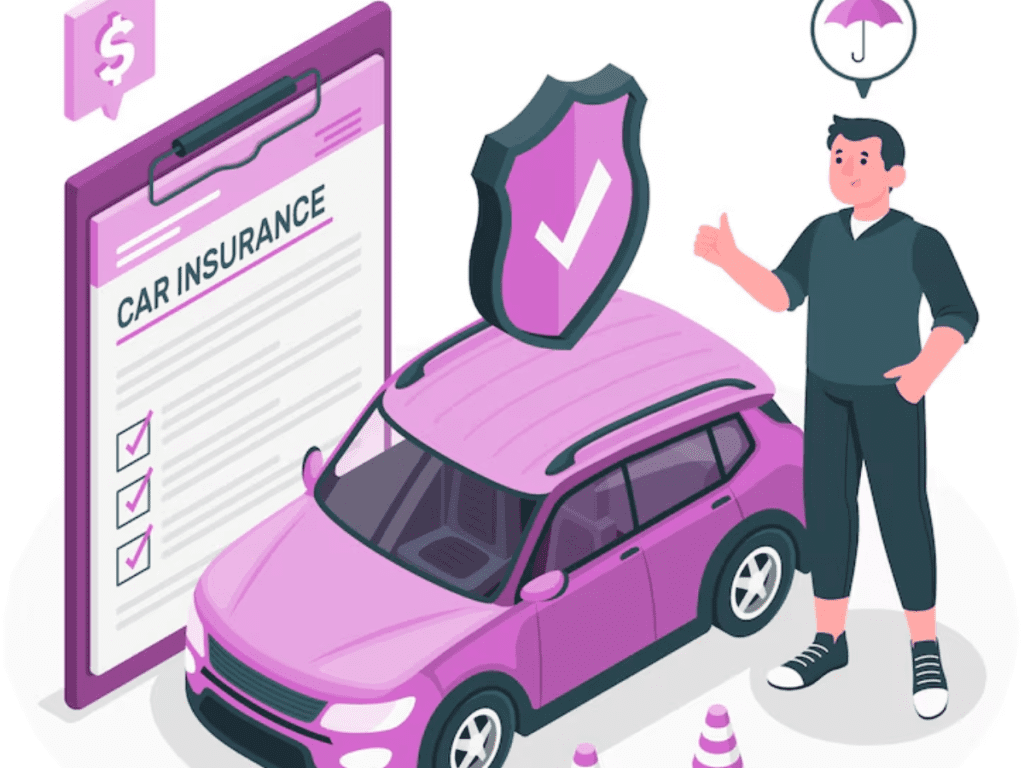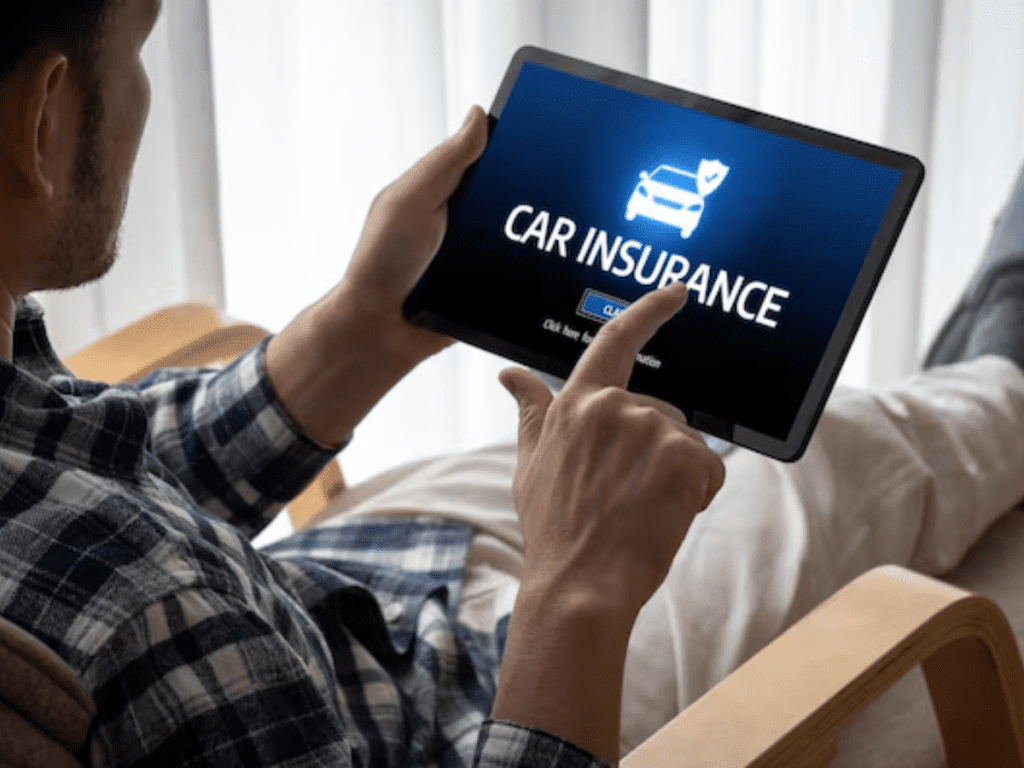Introduction
With the quickly expanding gig economy, driving for a rideshare service like Uber, Lyft, or delivery services like DoorDash, Postmates, and Grubhub is a popular means of earning supplemental income. With flexibility and the potential to earn income on your own schedule, these services have become extremely appealing. While the opportunity to drive for rideshare companies may be tempting, it does bring a whole new risk with it, particularly when it comes to insurance. If you intend to drive for a rideshare company, you need to know what kinds of auto insurance coverage you’ll need. Rideshare driving has certain risks not typically covered by regular automobile insurance policies, and that means having the right insurance is essential to guard yourself against financial loss.
Why Is Auto Insurance Necessary for Rideshare Driving?
When you’re driving your vehicle as a rideshare driver, you’re not merely driving for personal purposes. You are driving for business purposes, which means that your vehicle is being employed as a business tool. This makes a difference because regular personal auto insurance policies do not usually cover business activities. In the event that you are involved in an accident while working as a rideshare driver, your personal auto insurance might deny coverage for the damages, making you financially exposed. In these cases, having the right insurance coverage is essential to ensure that you’re adequately protected in case of an accident or any other unforeseen circumstances.
Understanding the Risks Involved in Rideshare Driving
To fully understand the insurance requirements for rideshare driving, it’s important to first grasp the unique risks associated with the job. When you drive for Uber, Lyft, or a delivery company, you are exposing yourself to various risks than when driving for private reasons. For example, you have a higher chance of getting into an accident because you are driving for more hours, exploring unfamiliar routes, and possibly coping with distracted passengers or delivery assignments.
Aside from the danger of accidents, rideshare drivers can also be in jeopardy of being sued for damages or injuries inflicted on passengers, pedestrians, or other motorists. This is where liability insurance enters the picture, as it pays for the legal bill and award for damages in case you are found liable in an accident.
Additionally, rideshare driving tends to entail transporting passengers or goods, which can lead to other hazards. Your car may be subjected to more wear and tear, and there is a greater chance your car will be involved in accidents than in personal driving. Hence, having full coverage insurance is not only about insuring your car, but also insuring you against possible liability claims.
Types of Auto Insurance for Rideshare Driving
To ensure that you are properly insured while driving for a ride-sharing company, you must think about several different categories of insurance coverage. Not every auto insurance policy is the same, and your regular personal insurance will most certainly not cover someone who works as a ride-share driver. This is how you break down the different types of insurance that you should have while driving for Uber, Lyft, or a delivery company.
1. Personal Auto Insurance
Personal auto insurance is the minimum coverage that all drivers must have. Personal auto insurance is mandated by law in most states and protects you when you are driving for personal use, like going to work or doing errands. Personal auto insurance usually includes a mix of the following:
- Liability coverage: It pays for other people’s and their property’s damages and injuries that you inflict upon them in case you are at fault when an accident occurs.
- Collision coverage: This assists in paying for repairing or replacing your vehicle if it has a collision, no matter who is responsible.
- Extended coverage: This pays for damage to your vehicle that is not a result of a collision, such as being stolen, vandalized, or damaged by an act of nature.
- Uninsured/underinsured motorist coverage: This guards you in the event that you have an accident with a driver who lacks adequate insurance to repair the damages.
Whereas personal auto insurance is necessary for daily driving, it might not protect you while you are driving for a ride-sharing company. Ride-sharing firms such as Uber and Lyft provide their own insurance coverage, yet this coverage is subject to limitations based on the phase of the ride. It is therefore highly advisable to complement your personal auto insurance with further coverage tailored for rideshare driving.
2. Rideshare Insurance
Rideshare insurance is an example of specialized coverage created to bridge gaps in your policy when you are driving for a rideshare company. Rideshare insurance is usually available as an endorsement (add-on) on your own personal auto insurance coverage or as a separate policy. This coverage will make sure that you are sufficiently covered during those moments when you are driving for a rideshare company, whether waiting for a ride request, driving a passenger, or picking up a delivery.
- Rideshare Endorsement (or Add-On): A rideshare endorsement is an affordable means to make sure you are sufficiently covered while driving for Uber, Lyft, or a delivery company. This add-on extends your current personal auto insurance policy to cover the time you are logged into the rideshare app, waiting for a ride or delivery request, and driving to pick up or drop off riders. It is generally less expensive than buying a standalone rideshare insurance policy, so it’s a good option for part-time or occasional drivers.
- Commercial Auto Insurance: Commercial auto insurance is more costly but provides wider coverage than a rideshare endorsement. This policy is ideal for drivers who drive mainly for business purposes, such as rideshare driving. Commercial auto insurance covers all sorts of accidents, such as property damage, liability claims, and medical costs. It is the most comprehensive type of insurance for rideshare drivers, but it is also the most expensive. If you are a full-time driver for a rideshare company, buying commercial auto insurance could be worth it, so you know that you are covered fully.
3. Rideshare Company Insurance
Rideshare services such as Uber and Lyft offer their own insurance coverage to drivers. This coverage is not always adequate, though, and it varies based on the status of the ride. There are three different time periods in which the insurance coverage offered by rideshare services is in effect:
- Period 1: This is the period when you are logged into the rideshare app but haven’t yet accepted a ride request. While you’re here, the rideshare company normally offers limited liability coverage in the event of an accident. It doesn’t include damages to your vehicle, though, and you might have to use your own auto policy to pay for those repairs.
- Period 2: After you have accepted a ride request and are driving towards the passenger, the rideshare company offers more comprehensive coverage. This includes third-party liability coverage for damages, plus coverage on your vehicle in case of an accident. Some rideshare companies also extend collision and comprehensive coverage, but this also depends on whether you have signed up for these extra coverages or not.
- Period 3: After you have reached the end of the ride and dropped off the passenger, this period starts. Throughout this time, the liability insurance of the rideshare company will still extend coverage for damages or injuries involving third parties but will require your own personal insurance to cover yourself in relation to your own car.
It’s crucial to realize that the coverage offered by rideshare businesses might not be sufficient in every case. For this reason, most rideshare drivers choose to add a rideshare endorsement or buy commercial auto insurance so they can be properly covered.
4. Gap Insurance
Gap insurance is an optional coverage that can assist you if your car is totaled in an accident. If you have a delinquent car loan or lease, gap insurance pays off the difference between the actual cash value of your vehicle and the outstanding balance on your car loan or lease. If you don’t have gap insurance, you could find yourself having to pay more for your car than the insurance settlement will cover in the event that your car is determined to be a total loss. Gap insurance is particularly useful for rideshare drivers who may be using their vehicle for business purposes, as the wear and tear on the vehicle may increase the risk of a total loss.
5. Umbrella Insurance
Umbrella insurance provides an additional layer of liability coverage that goes beyond the limits of your primary insurance policies. If you’re involved in a major accident and the expenses go beyond the personal auto, rideshare, or commercial policy’s coverage limits, umbrella insurance will be able to pay for the remaining expenses. It can especially be vital to have for motorists who are out on the roads quite often and who might get involved in accidents more often. It is relatively inexpensive compared to other types of insurance and can provide significant peace of mind in case of an accident.

